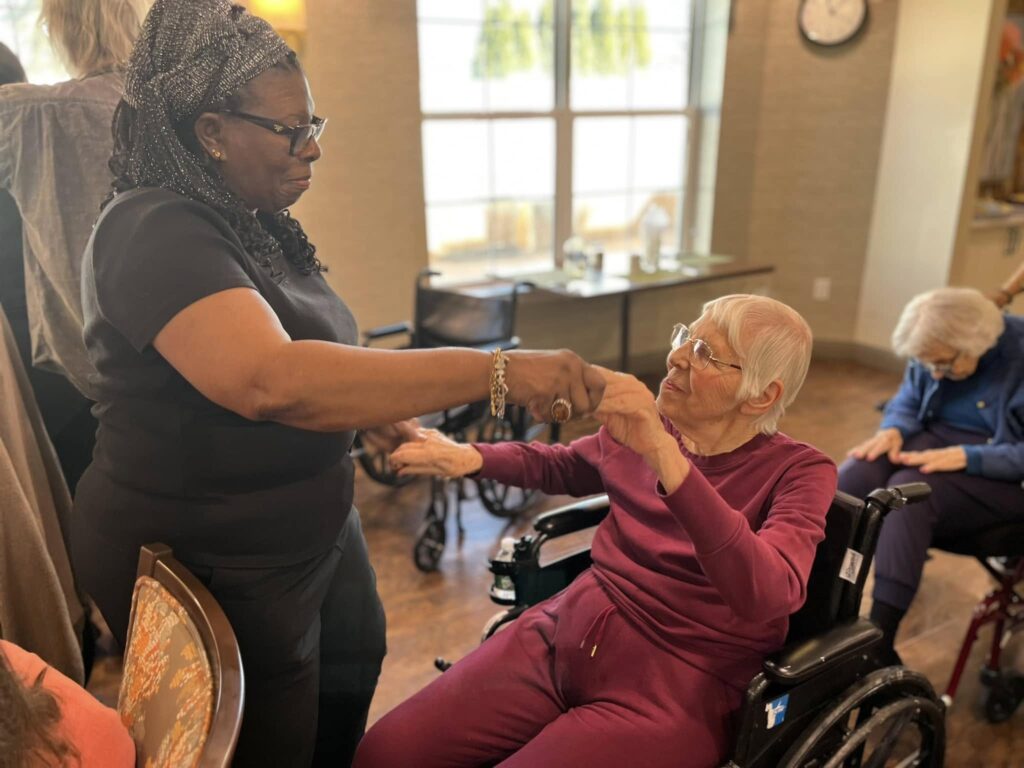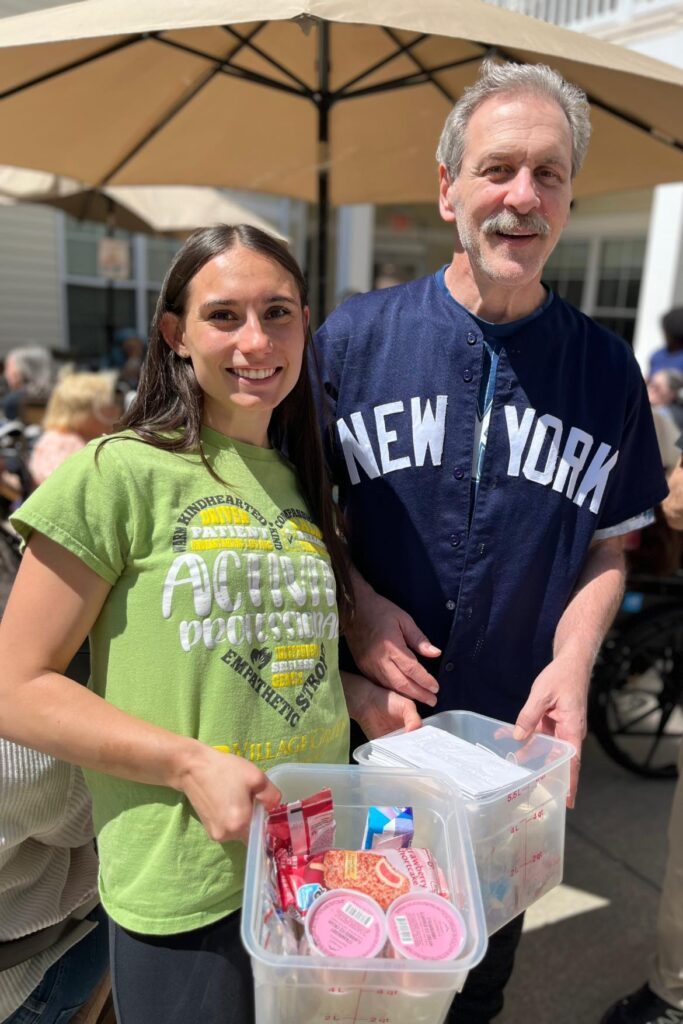Can depression cause memory loss? The short answer is: maybe.
The longer answer is that research suggests that stress — and chronic stress — can suppress key elements in the body that protect against depression and memory problems (Dillon and Pizzagalli, 2018).
As we grow older, spending time with loved ones, volunteering, avoiding foods that are harmful to our brains, and practicing healthy habits are crucial for slowing memory loss. If you skip out on healthy habits for slowing memory loss, you may increase the chances of experiencing age-related memory loss.
But you don’t need to worry yet, because with the right education, you can empower yourself to make healthy brain-related habits that will stave off age-related memory loss.
In this article, we’ll unpack the question, “Can depression cause memory loss?” by looking at the following topics:
- Common symptoms of depression
- What research says about the link between depression and memory loss
- Common causes of memory loss for seniors
- What to expect when diagnosing memory loss for seniors
- Living with depression and how to manage it
- Asking for help with depression and memory loss
Is depression linked to memory loss?

Depression is linked to memory loss in the sense that depression can cause memory-related problems, such as forgetfulness and confusion.
Also, depression can make focusing on work, making decisions, and thinking with clarity a real challenge. While depression is linked to short-term memory loss, depression doesn’t affect long-term memory or procedural memory.
People with depression may exhibit a range of symptoms, including the following:
- Feelings of low self-worth, shame, guilt, and powerlessness
- Feeling sad, anxious, numb, or hopeless
- Losing interest in activities or hobbies
- Feeling fatigued or having little energy
- Feeling restless and agitated
- Losing appetite and/or sudden changes in weight
- Issues with sleep, that is either over- or under-sleeping
- Potential thoughts of suicide and/or death
Note: We don’t claim to be research experts or healthcare experts. If you think you may have depression, we always recommend reaching out to your healthcare team first. If you or a loved one know of someone who is depressed and needs help immediately, help is available.
Call or text 988, the Suicide and Crisis Lifeline, to speak with a qualified professional who can help.
Research on depression and memory loss

Speaking of depression and memory loss, we’re continuing to develop a greater understanding of what the research says about depression’s role in atypical and typical age-related memory loss. For example, research suggests that in addition to depression, personality and anxiety may also contribute to memory loss (Arbabi et. al., 2015).
Other studies suggest that older adults who perceived that they experienced depressive symptoms lead to experiencing future depressive symptoms (Bhang et. al., 2019). Both of these studies suggest that ongoing research is needed to determine to what extent depression and memory loss affect one another.
What’s clear is that a link exists between the two constructs — depression and memory loss — and that the research is ongoing and ever-evolving. As such, seniors and older adults should continue to read up on the causes of depression and ways to work through depression and memory loss.
Seniors: other common causes of memory loss

The link between depression and dementia can’t be overstated. For many seniors, depression can affect memory, so understanding why memory loss occurs can help slow its progression.
Some reasons why an older adult may experience memory loss include:
- Common age-related memory loss: Part of normal age-related memory loss includes, for example, forgetting where you placed your keys or whether you called a friend but remembering later in the day is all. Normal age-related memory loss is common and manageable.
- Alzheimer’s disease: one of the most common forms of dementia, Alzheimer’s disease can cause memory loss and progressive, irreparable damage to the brain
- Mild cognitive impairment: a memory-related issue that can affect thinking skills, Alzheimer’s disease, and other forms of dementia
- Minor head injuries or traumas
- Medications: some medications can cause general forgetfulness.
- Infections or tumors in the brain: can affect memory and trigger dementia-like symptoms.
- Alcoholism or drug abuse: can sometimes lead to alcoholic dementia.
- Vitamin B-12 deficiencies: can affect memory as well
- Hypothyroidism
- Parkinson’s disease: Parkinson’s disease can cause memory problems because the brain and nerves are damaged.
- Electroconvulsive therapy (ECT) treatments for depression: small electric currents are sent through the brain, triggering short-term memory loss after receiving ECT treatments.
While not all of these issues are preventable, many are. With the right treatment options, memory loss may be avoidable.
With that being said, we can’t emphasize enough how important checking with a doctor is to determine effective treatments for depression-induced memory loss.
What to expect when being diagnosed with memory loss (for seniors)

Seniors: if you feel that depression is causing issues with thinking, here’s what you can expect during the diagnosis period for depression-related memory loss.
Your doctor will perform a physical exam and ask you questions to help determine the root cause of your memory loss. Doing so will help you explore the scope of the memory loss.
Some of the questions covered may include:
- The initial onset of the memory problems and how long it has lasted
- Whether you’ve felt sad, depressed, or anxious in recent times
- What medications you’re taking and whether you started a new medication
- Tasks that may be challenging to start or complete
- Treatments you’ve tried to resolve your memory issues
- Whether you drink alcohol, and if so, how much
- Whether you recently experienced a head injury, accident, or sudden illness
- Whether your routine has changed in recent times
By determining the environmental changes in your life, your doctor will be able to determine whether the memory loss is due to depression or other changes in the brain.
What’s more, to determine the scope of changes to the brain, your doctor may also perform a variety of imaging tests such as an MRI or EEG to explore your brain’s activity. Finally, your doctor may also refer you to a neurologist or psychiatrist to better understand the source of the memory issues.
Managing memory loss (& depression and dementia)

Seniors and older adults: if your doctor does determine that your memory loss and mental health condition is related to depression, memory loss due to depression can be managed with counseling therapy and medications.
If you’re looking to manage memory loss and improve memory, the following lifestyle tips can help:
- Living an active lifestyle full of regular physical exercise
- Involving yourself in community activities
- Using occupational therapy and a mix of techniques, such as using alarm clocks for time management, color-coding household items, and placing notes with instructions on common household items
- Hiring a home care provider or moving to a memory care community neighborhood
- Taking medications that help improve cognitive functioning
Depression affects many different aspects of life. But, it doesn’t need to rule your life or be the end of your memory.
With the right support and help, seniors can thrive, even with a depression-related memory-loss diagnosis.
Did you know?
Did you know that one of the best steps for seniors to take is to maintain their health, foster existing social connections, and develop new ones?
During the peak of COVID-19 in 2020, we recommended the following exercises for seniors. These exercises can greatly ease symptoms of depression and anxiety, as well as enhance physical health, balance, flexibility, and strength.
To view the three main exercises, hop on over to this Facebook page!
It’s okay to ask for help with depression-related memory loss

Seniors: if you’re experiencing persistent low mood or difficulty concentrating, we recommend checking in with a healthcare professional. They can determine if these feelings can be addressed with lifestyle changes — such as diet and exercise — or if other changes are needed.
But, if you’ve been experiencing memory loss and the symptoms of dementia for a long time — and you find that you may need a higher level of care for your needs — we’d like to ask: have you tried memory care?
We’ve found that people’s dementia progression is slowed when they receive the right medical and memory care-related interventions. Our facility offers physical, occupational, speech, and memory-care-related therapies, in addition to a host of recreational activities and healthy meals daily, to ensure the health and vibrancy of our older adults.
Just know that it’s okay to ask for help if you or a loved one is living with depression or depression-related memory loss. If you’re curious to learn more about how memory care can help you with memory loss-related conditions, don’t hesitate to reach out to our knowledgeable and friendly senior care team.
We’d be more than willing to shed some light on how memory loss can help with depression-related memory loss.
Welcome to Village Green: Levittown, NY’s Premiere Memory Care Community




